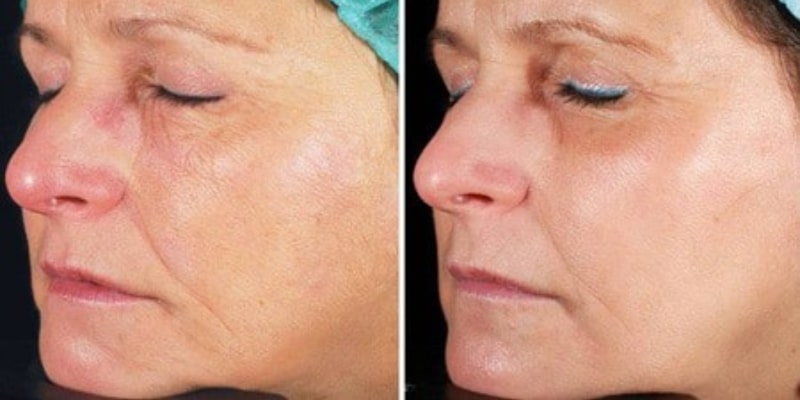Want to know the secret weapon that most addiction recovery programs completely ignore?
Nutrition. And here’s the thing…
Over 70% of individuals with alcohol dependence suffer from some form of nutritional deficiency. That’s not just a statistic — that’s a massive problem hiding in plain sight.
Most recovery programs focus on therapy, medication, and support groups. Don’t get me wrong, those are absolutely crucial. But they’re missing a fundamental piece of the puzzle that could make or break someone’s recovery journey.
Your body is literally starving while you’re trying to heal your mind.
What you’ll discover:
- The Hidden Crisis: How Addiction Destroys Your Body
- Why Most Recovery Programs Get This Wrong
- The Nutrients Your Brain is Screaming For
- How Proper Nutrition Accelerates Recovery
The Hidden Crisis: How Addiction Destroys Your Body
Studies show that 92.4% of drug addicts weighed under the mean weight for the population. But it’s not just about being underweight — it’s about what’s happening inside your body at a cellular level.
When substances take over your life, they completely hijack your body’s ability to absorb, process, and use nutrients properly.
- Alcohol blocks the absorption of crucial B vitamins
- Stimulants suppress appetite for days at a time
- Opioids mess with your digestive system
- Many substances drain your body of essential minerals
Your body is running on empty while trying to fight the biggest battle of your life.
Why Most Recovery Programs Get This Wrong
Want to know something that’ll blow your mind?
Less than 7% of treatment centers actually use a nutritionist. Only half of residential treatment centers even offer basic nutrition education.
That’s like trying to rebuild a house while the foundation is crumbling.
Here’s what happens when nutrition gets ignored:
Your brain can’t produce needed neurotransmitters. Serotonin and dopamine require specific nutrients to function. Without them, you’re fighting cravings with one hand tied behind your back.
Your energy crashes. Ever wonder why people in early recovery feel exhausted? Their bodies are literally starving for the building blocks of energy.
Mood swings become more intense. Blood sugar spikes and crashes trigger anxiety, irritability, and depression — all major relapse triggers.
For those seeking comprehensive support, programs like Red Ribbon Recovery Indiana understand that true addiction recovery requires addressing the whole person, including nutritional healing alongside traditional therapy and support services.
But here’s the good news…
The Nutrients Your Brain is Screaming For
During recovery, your body becomes incredibly efficient at healing — if you give it the right tools.
Protein is your foundation. Your brain uses amino acids to rebuild neurotransmitter pathways. Without adequate protein, your brain literally can’t rewire itself properly.
B vitamins are brain fuel. These are crucial for nerve function and energy production. Alcohol particularly depletes B1 (thiamine), which can cause serious neurological problems.
Omega-3 fatty acids reduce inflammation. Your brain is inflamed from substance use, and omega-3s help calm that response while supporting new neural connections.
Complex carbohydrates stabilize mood. They provide steady energy and help your brain produce serotonin naturally.
Antioxidants repair damage. Vitamins C and E, along with selenium and zinc, help repair oxidative damage from substance use.
The research is pretty clear on this…
How Proper Nutrition Accelerates Recovery
Here’s where things get really interesting.
When people in recovery start eating properly, changes happen fast. We’re talking weeks, not months.
Cravings decrease significantly. When your blood sugar is stable and your brain has the nutrients it needs, those intense urges start to fade.
Sleep improves. Proper nutrition helps regulate your circadian rhythm and produces chemicals needed for deep, restorative sleep.
Energy returns. Instead of constant fatigue, you start waking up feeling refreshed and alert.
Mood stabilizes. Those emotional roller coasters even out when your brain chemistry gets back into balance.
But here’s the thing that most people don’t realize…
The Timing of Nutrition in Recovery
Early recovery is tough on your digestive system. Your body has forgotten how to process food properly, and you might experience nausea, loss of appetite, or digestive issues.
Week 1-2: Focus on hydration and easy-to-digest foods. Smoothies, soups, and simple proteins work best.
Week 3-4: Gradually introduce more variety. Your appetite should start returning, and you can handle more complex meals.
Month 2-3: Establish consistent eating patterns. Regular meals become crucial for maintaining stable blood sugar.
Long-term: Nutrition becomes a lifestyle. Healthy eating transforms from recovery tool to life enhancement.
The key is not to overwhelm yourself early on. Recovery is hard enough without adding dietary stress.
Building Your Recovery Nutrition Plan
Want to know the simplest way to start?
Eat every 3-4 hours. This keeps blood sugar stable and prevents mood crashes that trigger cravings.
Include protein at every meal. Aim for 20-30 grams per meal to support neurotransmitter production.
Choose complex carbs over simple sugars. Whole grains, vegetables, and fruits provide steady energy without crashes.
Stay hydrated. Dehydration mimics withdrawal symptoms and makes everything feel worse.
Take a good multivitamin. This covers your bases while your body learns to absorb nutrients properly again.
Don’t try to be perfect. Aim for progress, not perfection.
Common Nutrition Mistakes That Derail Recovery
Here are the biggest traps people fall into:
Replacing one addiction with another. Sugar, caffeine, and even “healthy” foods can become new obsessions. Balance is key.
Skipping meals. This crashes blood sugar and triggers intense cravings or mood swings.
Going on extreme diets. Your body is already stressed from recovery. Don’t add more stress with restrictive eating.
Ignoring hunger cues. Many people in recovery have lost touch with normal hunger signals. Relearning these takes time.
Not eating enough calories. Research shows most people in addiction treatment are malnourished and need more calories, not fewer.
The Recovery Nutrition Timeline
Month 1: Survival mode. Focus on eating every few hours, staying hydrated, and taking vitamins.
Month 2-3: Building habits. Start meal planning, cooking simple meals, and establishing regular eating times.
Month 4-6: Finding balance. Experiment with different foods, learn what makes you feel good, and develop a routine.
Month 6+: Lifestyle integration. Healthy eating becomes automatic, and you start seeing food as fuel for your new life.
Remember, malnutrition is prevalent among individuals with substance use disorders, and addressing this directly impacts recovery success rates.
Getting Professional Help
Sometimes you need more than general nutrition advice.
A registered dietitian who specializes in addiction recovery can:
- Assess your specific nutritional deficiencies
- Create a personalized meal plan that works with your recovery program
- Help you navigate food cravings and emotional eating
- Address any eating disorders that developed alongside addiction
Many insurance plans cover nutrition counseling as part of addiction treatment.
Making It Sustainable
The goal isn’t to become a nutrition perfectionist. The goal is to use food as a tool to support your recovery and enhance your quality of life.
Start small:
- Add one nutritious meal to your day
- Drink an extra glass of water
- Take a multivitamin consistently
- Eat something within an hour of waking up
These small changes compound over time and create the foundation for lasting recovery.
Time to Take Action
Nutrition in addiction recovery isn’t optional — it’s essential. Your brain, body, and long-term sobriety depend on giving your system the fuel it needs to heal and thrive.
The research is overwhelming: people who address nutrition as part of their recovery plan have better outcomes, fewer relapses, and higher quality of life.
You’ve already taken the hardest step by getting sober. Now give your body the tools it needs to support the incredible healing you’ve started.
Your recovery deserves every advantage you can give it. Sometimes, that advantage comes down to something as simple as eating the right foods at the right time.
Start today. Your future self will thank you.





